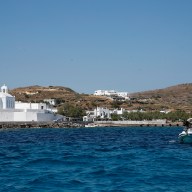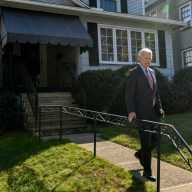By John Davison
BEIRUT (Reuters) – An upsurge of intense fighting around Aleppo has killed scores of Syrians in the past weeks, displaced thousands and cut water and power to up to two million people on both sides of the front line, worsening the already dire conditions faced by hundreds of thousands in the city. In a war already marked by humanitarian crisis, the United Nations says the fighting threatens to replicate deprivation recently suffered by those in rebel-held eastern districts of Aleppo among civilians living in the government-held west. Residents and aid groups contacted by Reuters spoke of acute water shortages and power cuts, and concerns over food supplies and hygiene in a stark assessment of life in the city of Aleppo.
Advances by warring sides in the last month, which resulted in a siege of rebel-held neighborhoods and the severing of a major route into government areas of control, have choked off supplies and raised fears of the encirclement of the entire civilian population. Syria’s largest city pre-war has been divided into government and rebel areas of control for much of the conflict, and has been the focus of escalating violence since a ceasefire brokered by Washington and Moscow in February crumbled. Its capture would be a major prize for President Bashar al-Assad. Russia’s intervention last year helped turn the war in Assad’s favor. His forces with the help of Lebanese Hezbollah and Iranian fighters surrounded the eastern, opposition-held neighborhoods in Aleppo in July. The latest major gains were made by rebels, however, who broke the month-long government siege in an attack last week on a Syrian military complex and also cut the main supply route to the western, government-held areas of the city. “When the attack began … rockets and shells were fired toward Hamdaniya,” said Abu George, a resident who fled that neighborhood, close to the military complex in the southwest of the city. “There were people who had already been displaced sheltering in nearby areas, they had to leave,” the 61-year-old agricultural engineer said via telephone.
Rebel bombardments of Hamdaniya on Wednesday killed more than a dozen people, the Syrian Observatory for Human Rights monitoring group said. Syrian and Russian warplanes have heavily raided the areas taken by insurgents. The British-based group said bombardments by both sides have killed more than 120 people in the city since the start of August.
Abu George is among thousands who fled areas in southwest Aleppo in recent days, according to the International Committee of the Red Cross.
“Thousands of families have been displaced from southwestern Aleppo, including already displaced families who’ve had to move for a second time,” spokeswoman Ingy Sedky said.
Residents of western Aleppo said cutting the main supply route to the government side had slowed the entry of goods and fuel and driven up food prices, but a delivery by government forces via an alternative route this week provided some relief. “There were some problems with petrol and fuel, but supplies came in and the petrol stations are open and working,” Tony Ishaq, 26, said via internet messenger.
The alternative route used was until last month the only road into Aleppo’s opposition held sector. After intense bombardment, government forces captured the Castello Road in an advance that put eastern Aleppo under siege. HOSPITALS HIT, WATER AND POWER CUT
The siege worsened an already dire humanitarian situation in eastern Aleppo, residents and doctors said.
The rebel advance which broke through the siege on Saturday has not yet secured a safe enough passage to make more than one food delivery to the east, or for civilians to move through, with government bombardments hitting that rebel corridor on the city’s southwestern outskirts. “Fuel, vegetables and other essentials are not entering because the regime is bombing areas it lost like crazy,” said Hossam Abu Ghayth, a 29-year-old east Aleppo resident.
“There are warplanes and helicopters hovering in the skies, they’re bombing both civilian areas and the major front lines,” he said via internet messenger.
International medical charity Medecins Sans Frontieres, which supports a number of medical facilities in the opposition held sector, said the casualty toll had risen sharply.
“Because of the bombings and the fighting in Aleppo city there are more and more people coming to the hospitals,” Middle East Operations Manager Pablo Marco told Reuters.
Hospitals were having to cope with dozens of wounded arriving at the same time, he said, with only 35 doctors for the whole of east Aleppo’s population at least 250,000 people.
All eight hospitals supported by MSF have been affected by bombardments in recent months, Marco said. A U.S.-based rights group says several hospitals were hit in July.
The bombardments have compounded water and power cuts on both sides of the city.
East Aleppo residents have long experienced a lack of both.
“There’s no electricity – there are generators which provide a small amount, enough to work a fridge or lighting,” Abu Ghayth said.
“We wash once every Friday. We’ve got used to living this way,” he said. “We economize water so it lasts.”
Entire families often survive on 50 liters of water per day, transported from tanks or drawn from wells, he added. The World Health Organization says 20 liters are needed per person for basic hygiene. The United Nations said on Tuesday the main power facility that allowed water to be pumped to both sides of the city had been hit, leaving the entire population of nearly 2 million without running water and putting children at risk of disease. Sedky of the ICRC said residents were relying on underground water sources.
“The water pumping stations are not working anymore, on both sides. So the whole population has been relying on boreholes for water,” she said.
Fetching water from those boreholes in some areas was dangerous, with movement restricted because of bombardments and fighting, Sedky added.
Wells and tanks would not provide enough water for very long, she said.
The United Nations has called for an urgent humanitarian ceasefire in Aleppo, and is pushing for a resumption of peace talks that have failed to end the five-year conflict in which more than 250,000 people have been killed and some 11 million displaced. (Reporting by John Davison, editing by Peter Millership)














